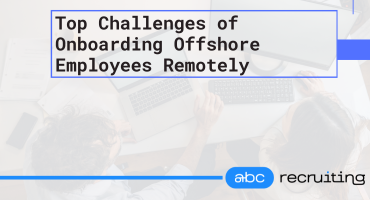In the rapidly evolving landscape of IT startups, offshoring IT services has become an increasingly popular practice. Offshoring IT allows companies to access a global talent pool and cost-effective resources, making it a strategic move for businesses aiming to thrive in a competitive market. However, while the benefits of offshoring IT are apparent, so too are the legal and compliance issues that Canadian IT startups must consider. In this article, we will explore these challenges and provide guidance on navigating the legal and compliance issues related to offshore IT recruiting.
The Promise of Offshoring IT Services
Offshoring IT services presents IT startups in Canada with numerous advantages, including cost savings, access to specialized skills, and 24/7 productivity. It allows businesses to scale more effectively and efficiently, making it an appealing strategy for those looking to compete on a global scale. However, as with any business venture, it comes with its unique set of challenges, particularly regarding legal and compliance issues.
Compliance Issues in Offshore IT Recruiting
- Data Protection and Privacy: When offshoring IT services, you are often sharing sensitive and confidential information with offshore teams. Data protection and privacy laws must be adhered to, which may vary from country to country. Ensure that your offshore partner has robust data protection policies in place and is compliant with Canadian data privacy regulations.
- Intellectual Property Protection: Protecting your intellectual property is crucial. Contracts with offshore partners should include stringent intellectual property clauses to safeguard your innovations, codes, and proprietary data.
- Labour Laws and Employment Practices: Offshore IT recruiting can be affected by local labor laws and employment practices. It's essential to understand the legal framework in the offshore location to ensure that your employment practices are in compliance with local regulations.
- Contractual Agreements: Clear and comprehensive contracts are vital. Ensure your agreements with offshore partners are legally sound and explicitly state the roles and responsibilities of both parties, including compliance requirements.
- Taxation and Financial Compliance: Offshore operations can have tax implications. Consult with a tax expert to understand the financial and taxation compliance requirements associated with offshoring IT services.
Legal Issues in Canada
While offshoring IT services introduces legal complexities, Canadian IT startups must also be well-versed in domestic legal matters. Understanding and complying with Canadian laws are just as crucial.
- Workplace Regulations: Canadian employment laws govern various aspects of the working relationship, such as minimum wage, working hours, and employment standards. Ensure that your employment practices align with these regulations.
- Visa and Work Permit Compliance: If your offshore team includes foreign workers in Canada, be sure to comply with visa and work permit requirements. Failure to do so can result in legal complications.
- Discrimination and Harassment Laws: Canadian laws prohibit discrimination and harassment in the workplace. IT startups must maintain a safe and inclusive working environment to avoid legal issues.
- Contractual Agreements: Clearly defined contracts are essential in Canada as well. Ensure that all your agreements with employees, contractors, and clients are legally sound and comprehensive.
Navigating Legal and Compliance Challenges
Navigating legal and compliance issues in offshoring IT recruiting can be daunting, but it's not insurmountable. Here are some steps to help Canadian IT startups successfully manage these challenges:
- Due Diligence: Thoroughly research the legal and compliance requirements in both Canada and the offshore location. Consulting with legal experts who specialize in international business can be invaluable.
- Strategic Partner Selection: Choose offshore partners who are well-versed in legal and compliance matters. A reputable partner will have experience working with Canadian companies and will understand the intricacies of international regulations.
- Clear Contracts: Ensure all contracts are clear, comprehensive, and reviewed by legal experts. Address data protection, intellectual property rights, and compliance in detail.
- Regular Audits: Conduct regular audits of your offshore operations to ensure ongoing compliance with all applicable laws and regulations.
- Stay Informed: Keep abreast of changes in Canadian and offshore legal requirements. Staying informed is essential to adapt your practices and contracts accordingly.
Offshoring IT services offers immense potential for Canadian IT startups, but it comes with legal and compliance challenges that cannot be ignored. By understanding and proactively addressing these issues, businesses can harness the benefits of offshoring while mitigating potential risks. Through due diligence, strategic partner selection, clear contracts, regular audits, and staying informed, IT startups can successfully navigate the intricate legal and compliance landscape, both in Canada and offshore. In doing so, they can position themselves for sustainable growth and success in the competitive world of IT.




